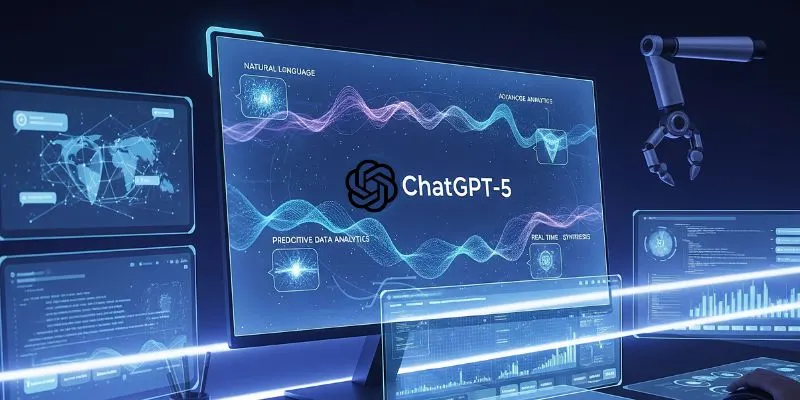
By futureTEKnow | Editorial Team
Amazon just made a substantial move into the world of AI wearables by acquiring Bee, a San Francisco-based startup behind a device that quietly promises to change the way we capture daily life. This wristband isn’t about counting steps or tracking heart rates—it’s about recording, transcribing, and making sense of every conversation you have throughout the day
The Bee device, resembling a minimalist fitness tracker, is worn on the wrist or clipped on and features two microphones, a simple button, and a distinctive lack of flashy screens. Its main function is clear: constantly listen, transcribe speech in real time via your smartphone, and use AI to deliver personalized summaries, reminders, and digital memories.
Seven-day battery life ensures ongoing awareness.
A $49.99 price tag puts it far below the likes of Meta’s smart glasses or other AI pins.
No subscription required, though there’s an app and subscription tier for power users.
Physical mute button gives users quick control over privacy.
The Bee device doesn’t just dump audio files into the cloud. It transcribes conversations on the spot, then analyzes and organizes information. Key features include:
Creating a searchable timeline of experiences.
Suggested to-do lists and reminders pulled straight from casual chats and meetings.
Integration with your calendar, contacts, emails, photos, and location data for deeper context.
Daily summaries—think of it like a personalized journal written by AI.
Always-on microphones naturally trigger privacy debates. Bee’s team previously committed to not storing raw audio and processing everything locally or with encryption, deleting recordings after use. However, with Amazon’s track record on privacy—think Ring doorbells and cloud services—industry watchers are wondering if these commitments will stick.
Amazon says it designs products to “protect customers’ privacy and security and to make it easy for them to be in control,” but stops short of promising to keep old Bee privacy protocols unchanged.
All audio is transcribed, not stored.
Transcripts and summaries are encrypted.
Physical mute and manual deletion options are available.
Amazon’s move isn’t happening in a vacuum. There’s a scramble among tech giants to define the next must-have AI accessory:
Meta is focusing on AI-powered glasses and eyewear partnerships.
OpenAI is reportedly working on voice-native AI devices with legendary hardware talent.
The Bee device stands out for its simplicity and affordability, especially compared to previous failed ventures like the Humane AI Pin or Rabbit R1.
The wearables market is shifting rapidly, with analysts predicting that AI-driven devices could soon grab a major share of the space. For Amazon, Bee represents both a return to wrist-based hardware (after scrapping its Halo fitness tracker) and a serious push to reboot Alexa and related services.
Amazon’s acquisition signals a future where AI enhances, filters, and remembers your life as it happens. The Bee wristband is a first step toward technology that acts as a “second brain”—always listening, always organizing, and always ready to assist without the friction of screens or keyboards.
However, this new phase raises fresh questions about consent, trust, and data ownership. As the line between personal note-taking and surveillance blurs, only time will tell whether consumers embrace this level of intimacy with AI—or walk away.
Bee is the most affordable, always-on AI wearable entering the market.
Transcribes, summarizes, and creates a digital record of your life—with privacy at the forefront.
Amazon’s move may reshape the future of intelligent personal assistants and digital memory.
This is one development every tech watcher should keep an eye on as the boundaries of AI, wearables, and personal privacy keep evolvinglving.

SpaceX aims to nearly double launches from Vandenberg in 2025, facing support from federal agencies but strong objections from the state and local communities.

Traditional Medicare will pilot AI-assisted prior authorization in 2026 across six states, focusing on high-risk outpatient services. Clinicians retain final say, but incentives and access concerns loom as CMS tests fraud reduction and “gold card” exemptions. Here’s what providers and patients should know.

OpenArt’s new “one-click story” compresses scripting, visuals, and edits into ready-to-post short videos—fueling viral growth and a fresh IP debate. We break down how it works, adoption signals, what’s next (multi-character, mobile), and practical guardrails creators and brands should follow to stay original and compliant.

OpenAI’s o3 swept the Kaggle AI chess tournament, defeating xAI’s Grok 4–0. The victory fueled the intense rivalry between Altman and Musk, reshaping AI benchmarks.

NASA and Google’s AI-powered Crew Medical Officer Digital Assistant enables autonomous diagnoses for astronauts on Mars missions, redefining remote healthcare for space and Earth.

Pinterest’s CEO confirms that fully agentic AI shopping is years away, as the platform invests in AI-powered tools to enhance discovery, inspiration, and personalized shopping experiences for millions.

Shopify’s new AI shopping tools are transforming e-commerce, letting agents and chatbots deliver smooth, personalized shopping and checkout experiences across platforms. Learn how these innovations reshape online retail.

Meta has acquired WaveForms AI, a startup pioneering emotion-detecting voice technology. Learn what this means for Meta’s AI voice ambitions and the future of AI audio.

Tracelight is revolutionizing financial modelling for finance professionals with AI-powered Excel tools that automate complex tasks, reduce errors, and unlock new analysis capabilities. Learn how this next-gen solution changes the future of spreadsheets.

China’s Lanyue lander completed its first major test, showcasing advanced engineering for safe, crewed moon landings before 2030. Explore how this milestone shapes the space race.

Microsoft rolls out GPT-5 across its Copilot suite, integrating smarter AI for enterprise and personal users. Discover new features, free access, and what sets this launch apart.

OpenAI’s GPT-5 is now live for all ChatGPT users. It brings faster, smarter AI with improved reasoning, expanded context, and safer outputs—marking a major leap in generative technology.
To provide the best experiences, we use technologies like cookies to store and/or access device information. Consenting to these technologies will allow us to process data such as browsing behavior or unique IDs on this site. Thanks for visiting futureTEKnow.